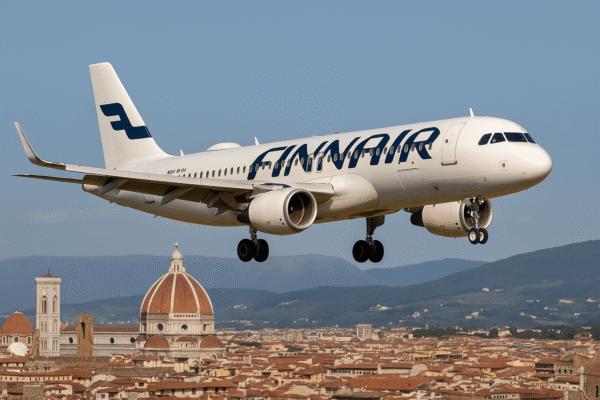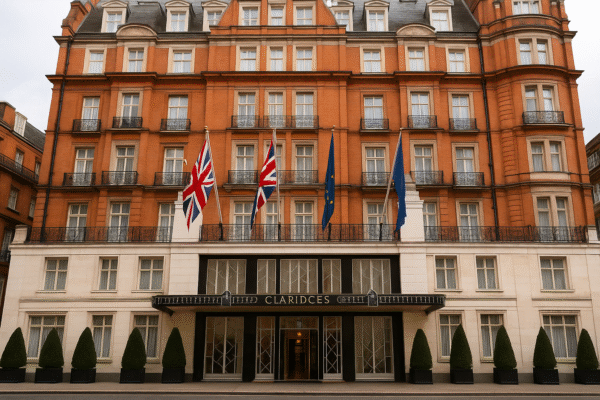London, United Kingdom — The luxury hospitality sector in London is witnessing a landmark moment as renowned Northern Irish property investor Paddy McKillen secures a massive legal victory. In a high-profile arbitration ruling, McKillen has been awarded between £700 million and £800 million in his dispute against the Maybourne Hotel Group, the parent company of London’s prestigious hotels — Claridge’s, The Berkeley, and The Connaught.
A Legal Blow to a London Hospitality Icon
The case revolved around McKillen’s consultancy agreement, signed after the 2015 acquisition of Maybourne Hotel Group by Qatari investors. Under this agreement, McKillen was promised 36% of the increase in the valuation of the hotel properties, net of renovation expenses. The agreement was set to run until the end of 2022. However, when the partnership ended abruptly in April 2022, McKillen argued that his contributions to the hotels’ renovation and growth had significantly increased their market value and that he was owed over £1 billion.
After months of legal proceedings, the London Court of International Arbitration (LCIA) delivered its verdict, awarding McKillen a sum between £700 million and £800 million. This figure represents one of the largest arbitration awards in the luxury hospitality industry in recent years and reflects the significant financial stakes tied to high-end property renovations.
The Investor’s Role in Maybourne’s Success
When the Qatari consortium acquired the Maybourne Group in 2015 for £1.3 billion, McKillen remained onboard as a consultant to lead the group’s modernization and refurbishment projects. His expertise and strategic direction played a pivotal role in enhancing the hotels’ appeal while preserving their heritage and exclusivity.
Claridge’s, for example, underwent an extensive refurbishment that captured international attention, including a widely followed documentary highlighting the transformation. Local contractors from Northern Ireland contributed significantly to these upgrades, emphasizing McKillen’s hands-on approach and regional ties.
From Dispute to Resolution
The dispute escalated when Maybourne’s owners terminated McKillen’s consultancy before the contract officially ended. McKillen estimated that the increased valuation of the properties entitled him to more than £1 billion. The owners disagreed, arguing that renovation costs and valuation adjustments warranted a much lower payout.
The arbitration panel reviewed extensive financial documentation and contractual details before determining the final award. The panel found that McKillen’s contributions had added substantial value to the properties, justifying the significant payout.
However, while the ruling is a financial victory, it may not translate into immediate payment. If the losing party resists compliance, McKillen could face further legal battles to enforce the arbitration award. Although challenges to such rulings are rare, the Qataris retain the right to pursue limited appeals.
Industry and Legal Implications
This arbitration sends a powerful message to stakeholders in the global luxury hospitality industry. It highlights the importance of well-defined, enforceable contracts in high-value projects where consultancy, renovation, and management services drive substantial property appreciation.
For developers, investors, and hoteliers, the case underscores the need for crystal-clear terms regarding revenue-sharing models, valuation benchmarks, and exit provisions in partnership agreements. The ruling is expected to influence future negotiations and could become a reference point for similar disputes worldwide.
Maybourne’s Expansion Plans
Despite the legal setback, Maybourne Hotel Group remains focused on ambitious growth. The group recently launched The Emory, an all-suite luxury hotel located next to The Berkeley, signaling a commitment to expanding its elite portfolio. Plans are underway to triple the number of properties by 2035, with upcoming openings in New York, Miami, Paris, and Dubai.
This aggressive expansion demonstrates Maybourne’s strategy to solidify its status as a global leader in luxury hospitality. However, the financial impact of the arbitration could influence how future deals and management contracts are structured.
Impact on London’s Tourism Sector
For travelers, the arbitration ruling has no immediate effect on the guest experience at Claridge’s, The Connaught, or The Berkeley. These properties continue to attract international tourists, business leaders, and celebrities seeking the pinnacle of luxury accommodations.
However, within the tourism and hospitality industry, the case sets a precedent that may lead to more transparent and balanced agreements between property owners and consultants. This shift could foster innovation in property development while ensuring that key stakeholders are adequately compensated for their expertise and contributions.
Looking Ahead
McKillen’s victory is not just a personal achievement but a significant moment for the global hospitality market. It emphasizes the financial and legal complexities that accompany high-value partnerships in a sector driven by branding, exclusivity, and property valuation.
As Maybourne Group looks to the future with global expansion on the horizon, this case will likely influence how developers, investors, and operators negotiate terms in similar multi-billion-pound ventures. For London, already a global hub for luxury travel, the ruling reinforces the city’s position as both a prime tourist destination and a dynamic center for high-stakes hospitality investments.
For more travel news like this, keep reading Global Travel Wire













